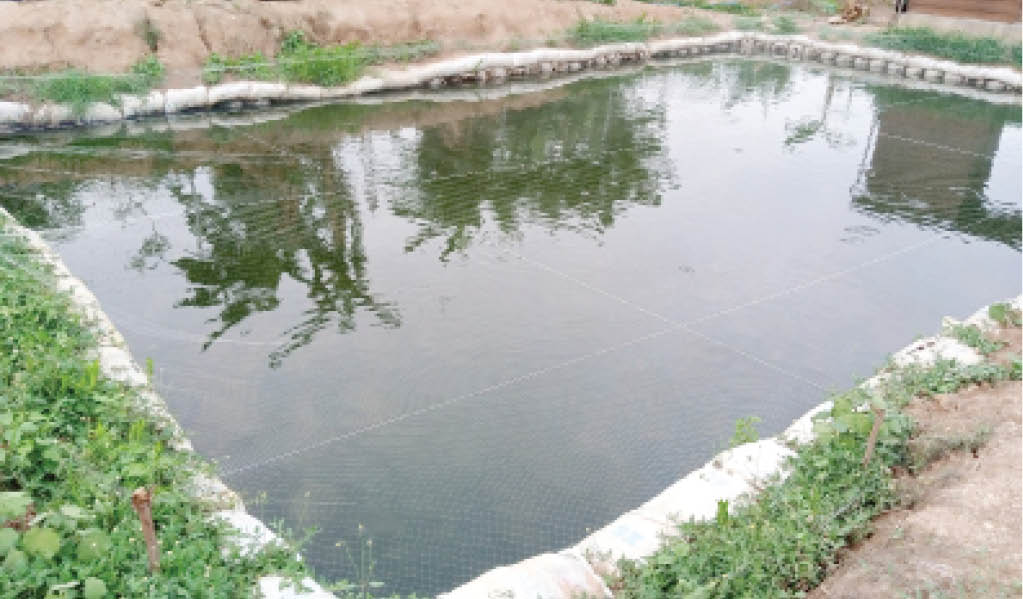For many fish farmers in Ilorin, the Kwara State capital, catfish business is a lucrative venture that has not only taken them out of the labour market as job seekers but also made them employers of labour.
Many of the farmers have strived and toiled despite daunting challenges to make the industry one of the most lucrative in the state and a big player at the national level, turning out about 20 tons of fish daily.
- Kano workers seek review of retirement age
- Kano: Ganduje approves 65 years retirement age for teachers, lecturers
For the uninitiated, the growth of the Ilorin catfish business is, among other things, connected to the location of Asa River that flows past Egbejila community, which is now the headquarters of catfish production in the metropolis.
With over 300 fish ponds scattered across many phases, according to the demarcation by the operators, Egbejila community is gradually becoming a destination of choice for fish feed investors and other related enterprises in the state.
According to some of the fish workers, who spoke to Daily Trust, the growth of the catfish production industry in Ilorin, to a leading player in the business in the country, is connected among others to the location of the river, which serves as a natural source of water for the fish in the ponds.
From the fish farmer to farm workers, all the way down to the middlemen, drivers and the fish buyers in Abuja and other states where the catfish market thrives, the value chain of the catfish business in Ilorin is a beehive of activities.

A fish farmer and chief executive officer of Alasela Farm, Egbejila, Ilorin, SulymanAlasela, who revealed that he had been in the business for more than two years now, with seven farms, said he underwent a six-month training to learn the nitty-gritty of the business and about two weeks for the practical aspect of the business.
While noting that the business is capital-intensive, the young farmer said he started fish farming with N5 million.
In terms of fish patronage in Kwara State, especially in Ilorin, Alasela said, “I must say the patronage within Ilorin is really nothing to write home about. It is poor, to say the least. The folks here prefer to buy from the local market. I enjoy patronage from outside the state. We sell to Lagos, Abuja, among other states,” he noted.
He further said the prices of catfish varied and that they sold per kilogramme.
“The big/medium size fish sells at N900, small N850, smallest N800 and tiny, N750. There is what we call tiny-tiny, which goes for 620 per kg. Many people don’t know that the business requires a lot of personal efforts and capital; they think it is just for leisure and we just do it during our spare time.
“Trying to make excess profit can lead to devastating consequences in losses. And there are times you also run at a loss because of a lot of factors,” he added.
A worker at Egbejila Farm, Mr Abdulrahman Abdulrazaq, while speaking on the thriving market in the state, told our correspondent that “fish needs fresh water more than anything. And luckily, the Asa River is not salty, so it allows many of them in the pond to quickly develop, in addition to the expertise and commitment of the farmers in the business.’’
He added, “The business is lucrative, but it needs time and commitment. You need like 6,000 pieces of fish, which is about N150,000, for a start. The 5kg bag of floating feed for beginners is at N6,000 each and is then graduated to Blue Crown because of the cost implication.
“Thereafter, we buy local noodles. A ton is sold at N500,000. Their feed is N420,000 per ton and they need about 6 tons before they mature for harvest, which is six months. So, total expenses run into N2 million or more. This is excluding their medication.
“We pump about 6 litres of water per day with diesel/fuel generator. The fish need constant water along with the feed. Depending on the pond, spending can run up to over N3 million, but you will make profit, all things being equal.
“Now, the price of a big fish is N900/per kg, and one bus-load of that is about N1,250,000. We can get up to four buses.”
Abdulrazaq said the business had improved the economy of the community as the people have now gone into the sale of pipes, hoses, fish feeds, boots, nets (to protect the fish from birds attack at their early stage). “Others buy fish from the farm at a cheaper rate and smoke for sale. It will interest you to know that some fish robbers do come to steal at night. They come with canoes to perpetrate the act,’’ he further said.
An agent, who is also a farmer but didn’t want his name mentioned, said although Kwara was one of the leading states in catfish production, such situation is not permanent.
“About four states compete in high production of catfish in Nigeria. They are Ijebu (Ogun), Ibadan, Ejiba (Kogi) and Ilorin (Kwara), based on the quantity we are capable of loading daily. But during the rainy season, the situation is no longer so. As soon as rain starts, the other fish markets will also peak.
“Unfortunately, unlike last year, people are now backing out of the fish business because there is no government support. You can no longer use N500,000 as startup capital; you need over N700,000. For some of the agents, when the mortality rate is too high or exceeds two plastic tanks, you will not be able to pay workers, which is N70,000 per day. A bus-load of fish goes for about N950,000 or N1million, depending on the sizes,” he added.
“We have to travel in the night to avoid high mortality rate because of heat and get to Abuja in the morning before the various fish markets in the capital city would open.
“Sometimes we charge between N80,000 and N90,000 per trip, out of which N40,000 is given to the owner of the vehicle. We still have to ‘settle’ the police, soldiers on the road and other security personnel with about N5,000,’’ Abdulsalam AbdulQadir, one of the fish supply bus drivers told Daily Trust on Sunday.
He added that depending on the time the fish are sold after harvest, the value also drops.
A guard at the Egbejila market, who also engages in fish feeding and pond digging said, “A new pond with a size of 30 by 40 is dug at N120,000 and 30 by 60 at N210,000. For the feeding of fish, we are paid N30,000 per month, and depending on the person we help to carry fish feeds, we collect N50 per page for a short distance but free of charge for our employers.’’
At the popular Kado Fish Market in Abuja, business is always at its peak between 7am and 9am when bus drivers from Ilorin offload their consignments.

 Join Daily Trust WhatsApp Community For Quick Access To News and Happenings Around You.
Join Daily Trust WhatsApp Community For Quick Access To News and Happenings Around You.

